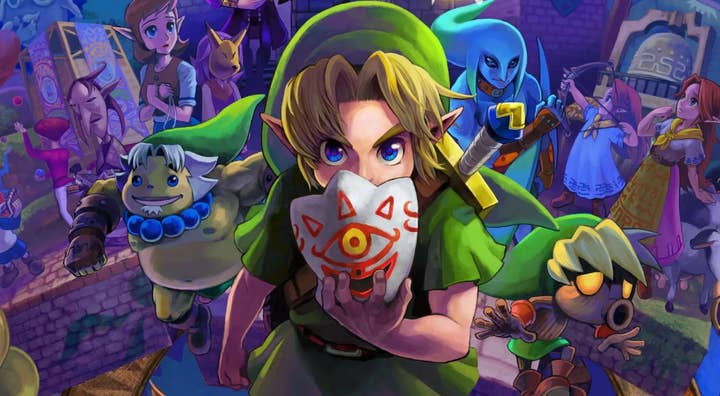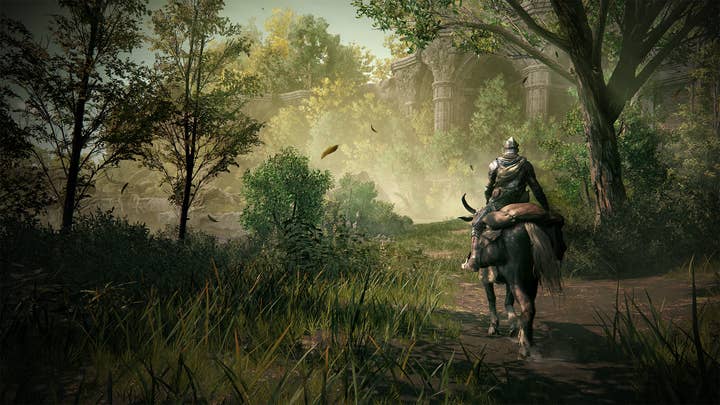Does the rise of 'expandalone' games mean the end for big DLC?
There's been a recent spate of expansions that have been reimagined as full games
Dying Light: The Beast is a new game from Techland that, originally, was destined to be DLC for Dying Light 2.
It's a familiar story. Last year's Assassin's Creed Mirage from Ubisoft was originally conceived as an expansion for Assassin's Creed Valhalla, before becoming its own, shorter standalone game. The most recent Call of Duty, Modern Warfare 3, according to reports, was initially planned as an expansion for Modern Warfare 2 before, again, it was reimagined as a separate game.
The idea of a shorter 'semi-sequels', or 'expandalone' games, is nothing remotely new. It's the idea of taking the work done on a previous title – such as the assets and structure – and building something new out of it. And this approach has led to some truly iconic games, such as The Legend of Zelda: Majora's Mask, Grand Theft Auto: Vice City, Far Cry 3: Blood Dragon and Fallout: New Vegas.

Over the years these 'expandalones' have been somewhat replaced by large downloadable add-ons to the main game. However, recent anecdotal examples suggest a pivot back towards these shorter semi-sequels.
An interesting case study is Insomniac's approach to Spider-Man. In 2018, the developer released Spider-Man, and immediately followed it with three DLC 'episodes' called The City That Never Sleeps. The three episodes together told a new story set in the same city, featured its own side missions and it's about 12 hours in length. It felt to me more like a new, shorter Spider-Man game, albeit one using the same mechanics and location of the main title.
Two years later, Insomniac released another Spider-Man story, set in the same city but this time with a few new tweaks. It was a little longer than the previous DLC, but still shorter than the initial game. Yet rather than release it as an expansion, the game was its own standalone release called Spider-Man: Miles Morales. It was a hit and has sold around 15 million copies.
The existence of Miles Morales meant fans had something to enjoy between mainline releases. And it also meant Insomniac's teams could go off and create something shorter, and give new talent the chance to actually make and ship a game. It was a project that worked for the fans, worked for the developers, and was a clear commercial success.
In the world of ever-lengthening development cycles, you can see why 'expandalones' are appealing for players, game makers and business planners. Here's a quote from James Batchelor's recent interview with Techland around Dying Light: The Beast.
"From the developer perspective, some of the problems that the industry faces right now is that games get bigger and bigger," said Dying Light franchise director Tymon Smektała. "They have bigger budgets, they take more time to produce. You have 500 people working on a game for five years, and in the end it might actually not be that successful.
"So for developers I think there's also some kind of an allure in spending less time, less money, less people on creating something that players will like. It gives you those shorter development cycles, and also the ability to try different things."

The situation prompted a question on GI's recent Q&A podcast, where we were asking why do developers even bother with big DLC releases anymore? It's obvious, from a business point-of-view, why live service games featuring season passes and/or microtransactions need to be kept updated. But why do other games still do that?
So we decided to ask some studios that very question. After all, big expansive DLC is still very much happening. One of the biggest releases of the year (so far) has been Elden Ring: Shadow of the Erdtree, a huge 50-hour add-on to Elden Ring. And last year CD Projekt delivered a 30-hour+ Cyberpunk 2077 expansion called Phantom Liberty. Surely these expansions could have been reworked as standalone releases, and would have had a larger addressable audience as a result?
To begin with, it's worth noting that an expansion is, typically, a cheaper project than a full game, in terms of both development and marketing. Releasing DLC for an existing title means there's a level of knowledge you can assume your audience has. There's less need to do any onboarding because you're not having to cater for new players. And from a marketing perspective, there is an immediate addressable audience to speak to, with little friction to getting them playing.
DLC does also boost sales of the main game, and in some cases substantially. We looked at GSD data to see the impact some DLC drops have had on games and we can see that sales for the base game, in some cases, increase by hundreds of thousands (even millions) of copies. Elden Ring sales jumped nearly 500% on the back of Shadow of Erdtree.
"DLC keeps the original game selling, and the longer it keeps selling, the more technically advanced and creative the next game can be"
What's more, it allows publishers to maintain the price point of their games. If you look at a title like No Man's Sky, for instance, that's a game that has been discounted in various sales down the years, but its normal selling price is as high today as it was in 2016. And that's been made possible by Hello Games' continued (free) updates and expansions.
When speaking to CD Projekt about its approach, there is the artistic desire to continue building upon the worlds it creates. And on the business side, the longer players are in that world, the more attached they become to a franchise, or a character, or a plot. Although it might seem like it's limiting the audience, DLC like Cyberpunk 2077: Phantom Liberty actually lengthens the lifecycle of the game, creates more stable, consistent revenue, and affords the company more time to invest in their next major RPG epic.
Put simply, the longer the previous game can keep selling, the more technically advanced and creative the next game can be.
There is evidence of a trend towards more 'expandalone' releases. But as always, it's going to come down to the game and the studio. I would argue the main allure of a Spider-Man title is in the story it tells, and that there's perhaps not much need to reinvent the wheel with each new instalment. Whereas a big expansive RPG is about immersing players in a character and a world that players would like to revisit.

From a business side, it might make sense to do a standalone release if a company wants to hit a larger audience. But if your previous game was a particularly big hit, it may be more financially prudent, sustainable and less risky to go down the DLC route.
The AAA industry has challenges. Dev cycles are longer than ever, which is driving up costs and can make studios risk-averse. And from a talent point-of-view, spending five years on a project is a big commitment. Therefore, this apparent trend towards shorter, standalone, more experimental projects makes a lot of sense. But it won't suit every game, and for the world's biggest studios, there will always be that drive to spend years building something that pushes the boundaries of what's possible.

